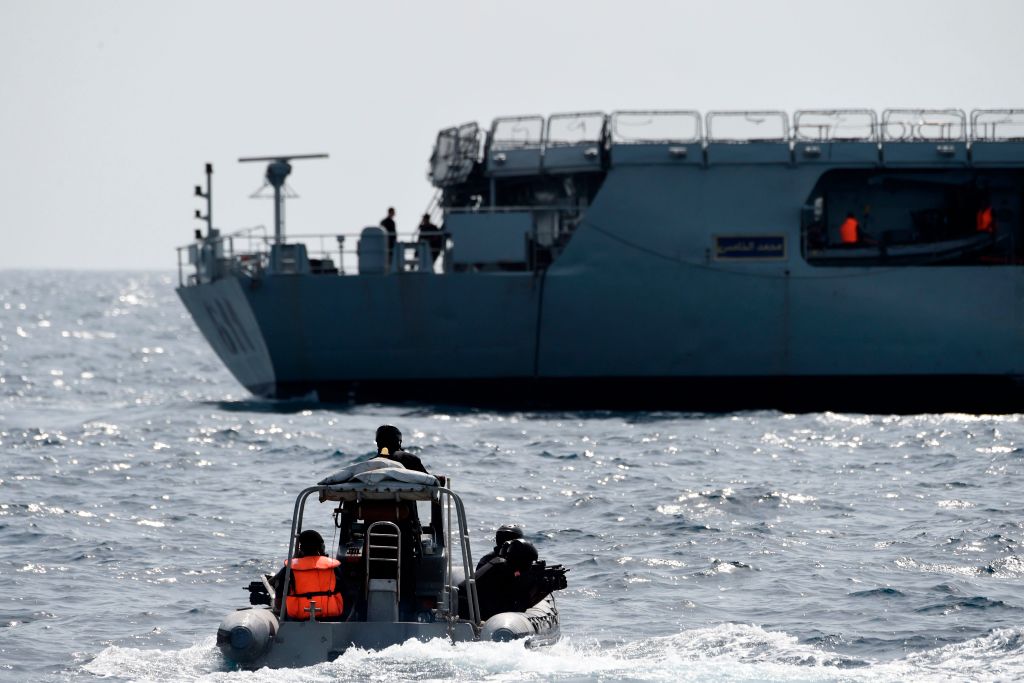ADF STAFF
Sea crimes are a constant threat to coastal countries. Pirate attacks are increasing off the coast of Somalia. The Gulf of Guinea remains the world’s epicenter of illegal fishing. Other crimes, including oil theft, drug smuggling, and human and weapons trafficking, are rife in continental waters.
Cobus Valentine, chief commercial officer of Global Command and Control Technologies, recently encouraged authorities concerned with maritime domain awareness to use artificial intelligence (AI) to help monitor their waters. Valentine spoke at the Ocean Economy Conference in Cape Town, South Africa, in late May.
“Artificial intelligence is transforming how we approach these domains, offering new perspectives and solutions,” Valentine said in a defenceWeb report.
Effective awareness requires authorities to keep track of all sea activities that could affect security, safety, economic well-being and the environment. Around the continent, authorities get maritime data from satellite imagery, radar systems, automatic identification systems and underwater sensors.
AI can rapidly analyze vast amounts of data from diverse sources, identify patterns and anomalies, and predict potential threats. This can help authorities make informed decisions regarding responses to incidents at sea.
It can also improve surveillance and monitoring by supporting autonomous vessels and drones. AI-enabled drones
can, for example, recognize the identification number of a fishing vessel, count the people on board, determine if it is fishing in a prohibited area and verify its permit.
Last year, the Nigerian Navy announced plans to use AI to strengthen its operational capacity and keep pace with evolving technological advancements in the maritime industry. The country loses $70 million annually to illegal fishing perpetrated by a host of foreign fleets, mostly Chinese, while piracy and drug smuggling also plague its waters.
Navies most commonly use AI in their Combat Management Systems, Matthew Caris, senior director at Avascent, a global strategy consulting company, told Armada International. In automatic mode, such systems can detect, identify, classify and prioritize targets before deploying weapons, although people are involved in decisions about when and how to use weapons. AI can also predict the most fuel-efficient way to operate a vessel. It can be included in a ship’s navigation system, radar operations or threat-detection systems to allow operators to process information faster.
The Nigerian Navy in late June hosted a seminar on harnessing AI to enhance maritime security, surveillance and response.
“It is, in fact, the future of military operations and we must, therefore, ensure that the armed forces of Nigeria meets up with this evolving technological achievement,” Vice Adm. Emmanuel Ogalla said in a report by the Nigerian Television Authority.
During the Ocean Economy Conference in Cape Town, Valentine did caution about AI-related challenges such as data quality and bias, difficulty in interpreting some information, and the possibility of cyber threats targeting AI systems. He underscored the need for continued human expertise and oversight to complement AI systems.
“By harnessing the power of AI, the maritime sector can move towards a safer, more sustainable and more efficient future,” Valentine said in the defenceWeb report. “However, it is crucial to address the challenges associated with AI implementation to ensure it aligns with international norms and human rights principles.”

